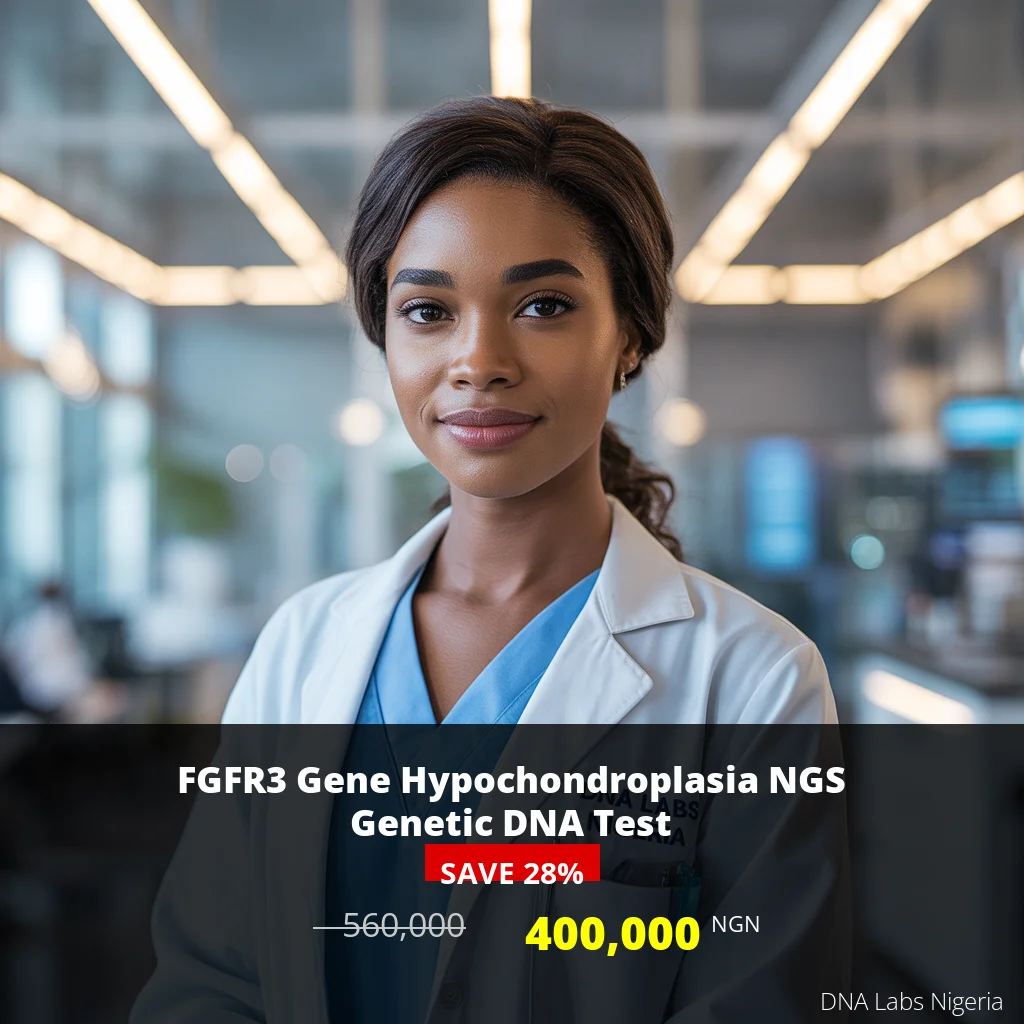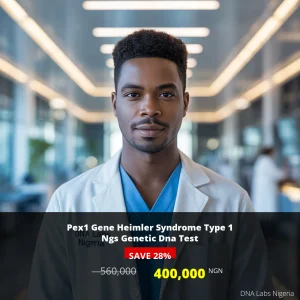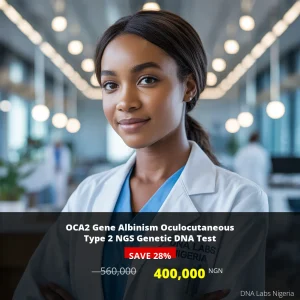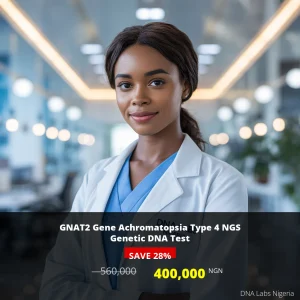FGFR3 Gene Hypochondroplasia NGS Genetic DNA Test
Introduction
The FGFR3 Gene Hypochondroplasia NGS Genetic DNA Test is a vital diagnostic tool used to identify mutations in the FGFR3 gene, which are responsible for hypochondroplasia, a genetic disorder characterized by disproportionate short stature. This test utilizes Next-Generation Sequencing (NGS) technology to provide precise and comprehensive genetic insights, enabling healthcare providers to offer tailored treatment options.
What the Test Measures
This genetic test specifically measures the presence of mutations in the FGFR3 gene. By analyzing the genetic material from a blood sample or extracted DNA, the test detects changes that may lead to the development of hypochondroplasia.
Who Should Consider This Test
Individuals who exhibit symptoms of hypochondroplasia, such as short stature with a normal-sized trunk and disproportionate limb lengths, should consider this test. Additionally, those with a family history of genetic disorders related to bone growth or those who have undergone genetic counseling may benefit from this test.
Benefits of Taking the Test
- Early diagnosis of hypochondroplasia can lead to timely interventions.
- Understanding genetic risks can help in family planning and management of the condition.
- Provides clarity on the inheritance pattern of the disorder.
- Facilitates informed decision-making regarding treatment options.
Understanding Your Results
Results from the FGFR3 Gene Hypochondroplasia NGS Genetic DNA Test will be communicated in a clear and understandable format. A genetic counselor will assist in interpreting these results, explaining the implications for the patient and their family.
Test Details and Pricing
| Test Name | Discount Price | Regular Price |
|---|---|---|
| FGFR3 Gene Hypochondroplasia NGS Genetic DNA Test | 400000 NGN | 560000 NGN |
Book Your Test Today!
Don’t wait to understand your genetic health. Book the FGFR3 Gene Hypochondroplasia NGS Genetic DNA Test today for just 400000 NGN. For appointments, please call or WhatsApp us at +2348110567037.
Additional Information
Turnaround time for results is approximately 3 to 4 weeks. The sample type required for the test can be blood, extracted DNA, or a single drop of blood on an FTA card. Prior to testing, it is recommended to have a genetic counseling session to discuss the clinical history and draw a pedigree chart of affected family members.
This test falls under the specialty of Dermatology and the department of Genetics, focusing on Osteology, Dermatology, and Immunology Disorders.







